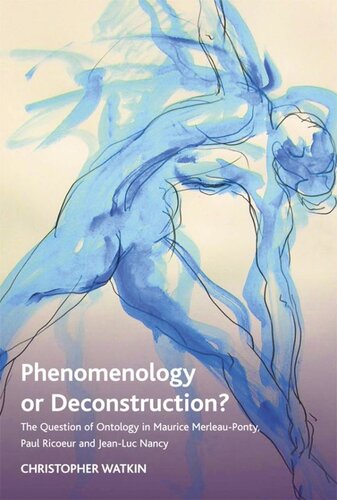

Most ebook files are in PDF format, so you can easily read them using various software such as Foxit Reader or directly on the Google Chrome browser.
Some ebook files are released by publishers in other formats such as .awz, .mobi, .epub, .fb2, etc. You may need to install specific software to read these formats on mobile/PC, such as Calibre.
Please read the tutorial at this link: https://ebookbell.com/faq
We offer FREE conversion to the popular formats you request; however, this may take some time. Therefore, right after payment, please email us, and we will try to provide the service as quickly as possible.
For some exceptional file formats or broken links (if any), please refrain from opening any disputes. Instead, email us first, and we will try to assist within a maximum of 6 hours.
EbookBell Team

4.8
24 reviewsPhenomenology or Deconstruction? challenges traditional understandings of the relationship between phenomenology and deconstruction through new readings of the work of Maurice Merleau-Ponty, Paul Ricœur and Jean-Luc Nancy. A constant dialogue with Jacques Derrida's engagement with phenomenological themes provides the impetus to establishing a new understanding of 'being' and 'presence' that exposes significant blindspots inherent in traditional readings of both phenomenology and deconstruction.
In reproducing neither a stock phenomenological reaction to deconstruction nor the routine deconstructive reading of phenomenology, Christopher Watkin provides a fresh assessment of the possibilities for the future of phenomenology, along with a new reading of the deconstructive legacy. Through detailed studies of the philosophy of Merleau-Ponty, Ricœur and Nancy, he shows how a phenomenological tradition much wider and richer than Husserlian or Heideggerean thought alone can take account of Derrida's critique of ontology and yet still hold a commitment to the ontological.
This new reading of being and presence fundamentally re-draws our understanding of the relation of deconstruction and phenomenology, and provides the first sustained discussion of the possibilities and problems for any future 'deconstructive phenomenology'.